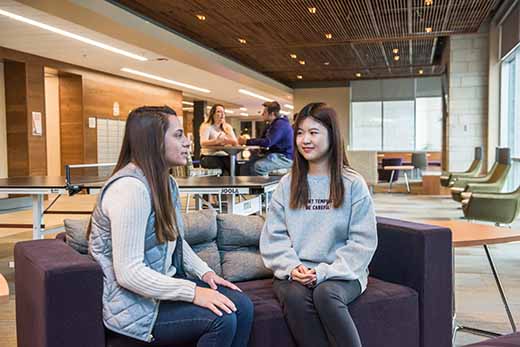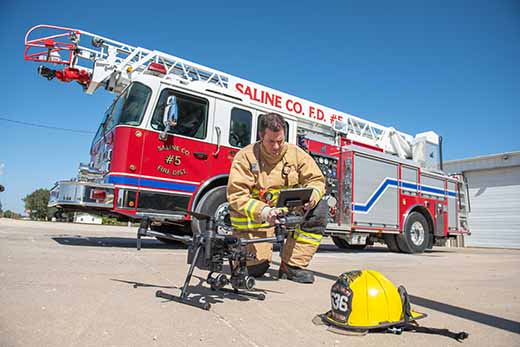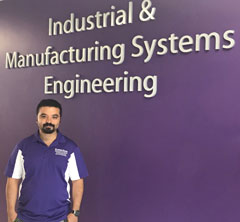07/21/21
K-State Current - July 21, 2021
K-State Current is a weekly news update for the Kansas Board of Regents to apprise the Regents on a few of the many successes and achievements made by K-State faculty, staff and students.
K-State News
K-State requiring first-year Manhattan campus students to live on campus beginning fall 2022
 To contribute to student success, first-year students on Kansas State University's Manhattan campus will be required to live on campus during their first two semesters beginning in fall 2022.
To contribute to student success, first-year students on Kansas State University's Manhattan campus will be required to live on campus during their first two semesters beginning in fall 2022.
Starting in fall 2022, Kansas State University will require incoming Manhattan campus first-year students to live on campus during their first two semesters. K-State is implementing this residency requirement to enhance student success.
"National research and an analysis of university-specific data both show a statistically significant difference in the first-year retention rate and cumulative first-year grade point average between students who lived on campus versus students who lived off campus," said Thomas Lane, K-State vice president for student life and dean of students. "K-State first-year, full-time students living on campus average higher GPAs, stay in school in higher numbers and graduate faster."
Based on data for fall 2018, K-State had an 87.6% retention rate for freshmen who lived on campus compared to a 79.9% rate for freshmen living off campus. For fall 2019, 5% more first-year students who lived on campus stayed in school as compared to first-year students who lived off campus.
K-State is not alone in its first-year residency requirement. The university will join all other Kansas Regents institutions, with the exception of the University of Kansas, in requiring freshmen students to live on campus. With this change, K-State will be the seventh of the Big 12 Conference's 10 member schools to require that students live on campus during their first year.
Students may apply for an exemption to the policy. Following a review, exemptions may be granted if a student plans to commute from the home of a parent/guardian or close relative who lives within 40 miles of the Manhattan campus or if the student will live in other approved organized student housing, including fraternity/sorority housing, Smith Scholarship House, Wesley House and Alpha of Clovia House. Additional information on eligible exemptions is available on the Housing and Dining Services website, housing.k-state.edu/living-options/freshmen. The exemptions application process will go live in December.
Lane said K-State is committed to providing safe, affordable housing to students. The university offers 10 residence halls with academic-focused options. Amenities include tutoring programs, on-site laundry facilities, round-the-clock security, advanced dining centers and more. For students who prefer to be more independent but still live on campus, K-State's Jardine Apartment Complex is available.
"Living on campus connects students to services supporting their transition into college life," Lane said. "As part of a university residential community, students will meet and develop supportive relationships with other students, faculty and staff. They'll have the inside track to discover ways to get involved through these support services and the connections they make."
Kansas State Polytechnic selected to lead NIST contract for UAS prize competition
 Kansas State Polytechnic has been selected to lead a national prize competition aimed at advancing the use of unmanned aircraft systems in first responder search and rescue operations.
Kansas State Polytechnic has been selected to lead a national prize competition aimed at advancing the use of unmanned aircraft systems in first responder search and rescue operations.
Kansas State University Polytechnic Campus has been selected to lead the third unmanned aircraft systems, prize competition by the U.S. Department of Commerce's National Institute of Standards and Technology, or NIST.
Named the First Responder UAS Triple Challenge, this prize competition will focus on the advancement of UAS technology to support first responders and help speed the time to save lives. The competition is comprised of three challenges where participants will use their UAS ingenuity to deliver creative solutions to advance first responder operations.
In partnership with Mississippi State University, K-State Polytechnic will coordinate the UAS Triple Challenge beginning in August, with live competitions in Starkville, Mississippi, and Salina in spring/summer 2022.
"This project has been a long time in the making for our team at K-State," said Kurt Barnhart, professor of aviation and lead of the K-State grant team. "We are privileged to partner with the challenge team at NIST in its ongoing effort to push innovative technologies forward for all first responders, providing life-saving help when needed the most. We're also excited to be working with the excellent team at Mississippi State University's Raspet Flight Laboratory to jointly develop and deliver this competition."
The three competitions composing the UAS Triple Challenge cover various areas of UAS technology. FastFind: UAS Search Optimized is focused on search and rescue using optical sensors and data analysis to improve image detection and location. LifeLink: UAS Data Relay is centered around supporting continuous delivery of broadband data in a degraded cellular area, and ShieldsUP! Securing UAS Navigation and Control requires participants to identify cybersecurity threats and countermeasures in three specific attack areas.
"Unmanned Aerial Vehicles are a critical resource for addressing public safety and aiding first responders," said Sen. Jerry Moran, Kansas. "I was pleased to support this initiative through my leadership role on the Commerce, Justice and Science Appropriations Subcommittee and look forward to the talent and hard work Kansas State University's expertise will bring polytechnic.k-state.edu to the challenge."
More than $700,000 will be awarded in prizes throughout the three competitions. Prize recipients will be determined by a panel of judges, assisted by a team of subject matter experts, throughout each stage of the competitions.
All UAS enthusiasts are encouraged to compete in the First Responder UAS Triple Challenge. The call for submissions opens Aug. 1. For more information on the competition and to register, visit uastriplechallenge.com.
The National Institute of Standards and Technology promotes U.S. innovation and industrial competitiveness by advancing measurement science, standards and technology in ways that enhance economic security and improve our quality of life. To learn more about NIST, visit NIST.gov.
Kansas State University's Polytechnic Campus is home to the university's unmanned aircraft systems program, which is a national leader in the unmanned aviation field and provides many engagement and education opportunities. Learn more at polytechnic.k-state.edu.
Mississippi State University's Raspet Flight Research Laboratory is the nation's leading academic research center dedicated exclusively to the advancement of unmanned aircraft systems. Raspet is the only institute in the world designated both as the FAA's UAS Safety Research Facility and as the official UAS test site for both the FAA and the U.S. Department of Homeland Security. Home to a fleet of the largest and most capable unmanned aircraft in academic use, Raspet conducts UAS research on behalf of federal agencies and commercial industry alike, and it remains a world leader in composite material research. MSU is Mississippi's leading university, available online at mssstate.edu.
For more information about the competition, contact Heather Wagoner at K-State Polytechnic, 785-826-2917, hwagoner@k-state.edu; Chris Bryant, MSU Office of Public Affairs, News Bureau, 662-325-3442, cbryant@raspet.msstate.edu
K-State Faculty Highlights
K-State associate professor Elizabeth Kiss receives Stewart M. Lee Consumer Education Award
 Dr. Elizabeth Kiss, associate professor and extension specialist, received the Stewart M. Lee Consumer Education Award at the 2021 Conference of the American Council on Consumer Interests for her work in consumer education.
Dr. Elizabeth Kiss, associate professor and extension specialist, received the Stewart M. Lee Consumer Education Award at the 2021 Conference of the American Council on Consumer Interests for her work in consumer education.
According to Dr. Yilan Xu, ACCI Awards Chair, Kiss “provides leadership to the Kansas State University Research and Extension, focusing on developing consumer financial knowledge and skills for sound financial decision-making. Her consumer education leadership has national impacts and her consumer education efforts align perfectly with the mission of ACCI and the purpose of the Stewart M. Lee Consumer Education Award.”
In her role at K-State, Kiss assists in the development and delivery of a statewide Cooperative Extension program focused on developing the financial understanding and skills necessary for all Kansans to make the best possible financial decisions throughout their lifetimes. She supports the work of Extension agents across the state by providing linkages to current research, educational resources, and statewide and national organizations. Her expertise is in framing, developing, and evaluating extension educational programs in the areas of family resource management, family and consumer economics, and personal finance.
The Stewart M. Lee Consumer Education Award is one of several key annual awards given by the organization and was established by ACCI in 1988 to recognize the outstanding, long-term contributions of Stewart M. Lee to consumer education. It acknowledges and encourages exceptional efforts for teaching, research or service to consumer education that exemplifies the qualities of Stewart M. Lee and his work, as well as the mission and vision of ACCI. The recipient is an individual or organization that has made multiple, important contributions to the field of consumer education over a long period of time, or a single, uniquely outstanding contribution of lasting impact.
Kiss received the award at ACCI’s 2021 Annual Conference held May 19-21, where more than 70 research presentations of findings on recent, relevant topics in consumer sciences were delivered. “We are honored to present Dr. Kiss this award and wish her much continued success,” stated Xu. To see all of the 2021 award winners, please visit www.consumerinterests.org.
Alex Wimmer president-elect of Kansas Bandmasters Association
 Alex Wimmer has been elected president-elect of the Kansas Bandmasters Association, or KBA, this past weekend at its annual summer conference. KBA is an organization that includes most of the high school band directors in the state and is dedicated to the promotion of bands and music education at all levels.
Alex Wimmer has been elected president-elect of the Kansas Bandmasters Association, or KBA, this past weekend at its annual summer conference. KBA is an organization that includes most of the high school band directors in the state and is dedicated to the promotion of bands and music education at all levels.
Wimmer joined K-State as assistant director of bands in 2017 after earning his master's and doctorate at K-State. He is a native of Gretna, Nebraska, having taught public schools there for a number of years before coming to K-State for his graduate degrees. He has been active in the state of Kansas and nationally, guest conducting, presenting sessions and clinics, adjudicating, as well as recruiting and fundraising for the band program. His wife, Anna, is the band/choir director at Rock Creek Middle School and they have two daughters, Addison and Anora.
Wimmer will serve as president-elect for two years before serving as president of KBA.
Congratulations to Alex Wimmer!
K-State Student News
Industrial and manufacturing systems engineering graduate student wins outstanding paper award
 Halil Tetik, K-State industrial and manufacturing systems engineering graduate student, was recognized for having a 2021 North American Manufacturing Research Institution Conference Outstanding Technical Paper in the manufacturing processes track by the institution's scientific and honors committee for his work, "3D Freeze-printed Cellulose-based Aerogels: Obtaining Truly 3D Shapes, and Functionalization with Cross-linking and Conductive Additives."
Halil Tetik, K-State industrial and manufacturing systems engineering graduate student, was recognized for having a 2021 North American Manufacturing Research Institution Conference Outstanding Technical Paper in the manufacturing processes track by the institution's scientific and honors committee for his work, "3D Freeze-printed Cellulose-based Aerogels: Obtaining Truly 3D Shapes, and Functionalization with Cross-linking and Conductive Additives."
In the research covered in the paper, Tetik, along with Keren Zhao, graduate student in industrial engineering; Nasrullah Shah, former visiting Fulbright research scholar from Pakistan; and Dong Lin, associate professor in industrial and manufacturing systems engineering, achieved the fabrication of 3D-printed aerogels based on cellulosic nanomaterials that can be customized and personalized for specific applications.
Cellulose is the most abundant natural polymer existing on earth and nanomaterials derived from it have been used in a variety of applications due to their superior properties over bulk cellulose. Aerogels are hıghly porous materials that can achieve ultra-low densities. Even though they have fıxed volume and shape as solids, their density can be lower than air. Aerogels made from cellulose nanoparticles have been reported as promising materials for biomedical and pharmaceutical applications, electrical devices, energy storage systems, thermal insulators and fire retarders.
In their 3D printing method, the team from K-State fabricated truly 3D structures by using water as support material and removing it from the main structure without thermal or chemical etching processes. They further used a wet-strength additive in their ink formulation to provide structural integrity to the 3D-printed aerogels. These can be used in biomedical applications such as tissue engineering or wound healing. They were also able to show that by adding a conductive polymer additive in the ink formulation, their 3D-printed cellulose-based aerogels can be used for piezoresistive sensing and flexible electronics.